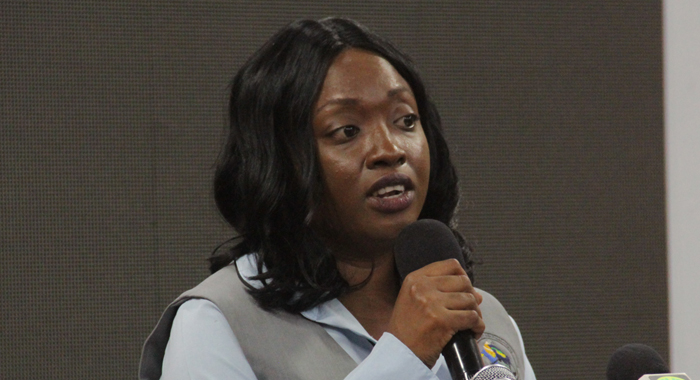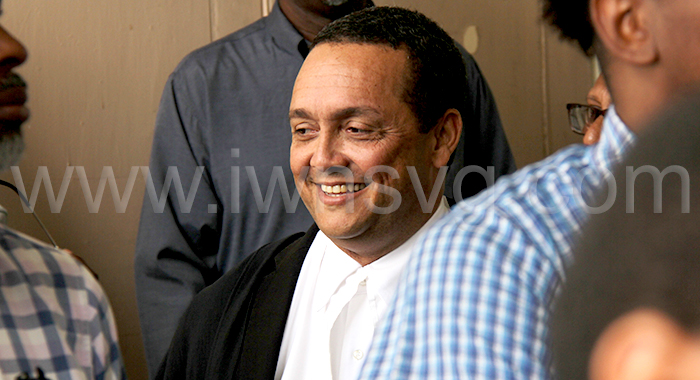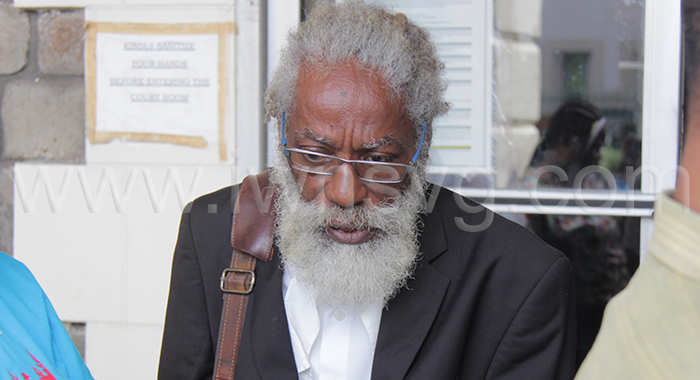The nation’s chief prosecutor and a number of defence lawyers have weighed in on the suggestion by Prime Minister and Minister of Legal Affairs, Ralph Gonsalves that preliminary inquiries be abolished and that there be judge-only trials in some cases.
Director of Public Prosecution Sejilla Mc Dowall expressed agreement with the suggestions saying that abolishing PIs would see matters coming more speedily to the High Court for trial.
However, Jomo Thomas, a defence counsel noted that most preliminary inquiries are disposed of within nine months of a person being charged but people wait up to six years for their trial before the High Court.
Grant Connell expressed similar sentiments, saying that the problem will not be fixed if people still have to wait years to be tried.
The issues were discussed on Thursday during the closing of the assizes, a sitting over which Justice Brian Cottle presided at High Court No. 1, in Kingstown.
Recently, Gonsalves said that as part of legal reform, his government is considering amending the law so that a magistrate would decide if to have a PI or paper committal proceeding in certain matters.
A PI and a paper committal are two types of proceedings through which a magistrate decides if there is enough evidence to commit someone charged with certain types of offences to be tried by a judge and jury before the High Court.
In a preliminary inquiry, witnesses generally have to attend court and give evidence and be cross examined, a process they have to repeat at the High Court, if the accused person is committed to stand trial.
In a paper committal, the magistrate, along with the lawyer for the accused person and the prosecutor read through the written witness statements in court and determine if to commit the accused person to stand trial.
In a paper committal, the witnesses do not have to attend court.

On Thursday, the DPP welcomed both of the government’s suggestions regarding PIs and judge-only trials.
“… the time is now for us to think about judge-alone trials,” she said, adding that she was sure that jurors had “endured” some trial.
“… some of the matters certainly, if there was an option, they would have said, let that cup pass from them if a judge could make that final determination in matters,” Mc Dowall said.
PIs might be a waste of money for accused people
Meanwhile, Thomas said that the notion that abolishing PIs “would fundamentally change the amount of time we spend waiting trial may not be as true as we make it out to be”.
He pointed out that even after a PI is completed — usually within nine months — some accused people are remanded for up to five years before they are tried.
Thomas, however, agreed with the abolition of PIs because, in the absence of legal aid except for murder trials, doing so could help to ensure that accused people have legal representation at their trials.
“… most often, a family member may be able to support an accused person at the PI stage and an attorney may get a fee at that stage but because the threshold is so low where once a prima facie case is made out it moves to the High Court, the family might be wasting money at the PI and by the time they get to the High Court they don’t have any money,” the lawyer said.
Thomas said he sees many people who are facing serious charges go to trial without a lawyer.
“… that is a travesty that that happens,” he said, adding, “Maybe we need to do more to ensure there is legal aid.”
He said he did not think that in 2023 anyone charged with a serious crime should be coming to court without a lawyer.

Thomas said that a lawyer may advise a client to plead guilty rather than going to trial and being convicted.
The counsel said there is a public notion of why hire a lawyer if the lawyer is going to advise the client to plead guilty.
He, however, noted that people in the judicial system know that there are benefits to pleading guilty rather than being found guilty, including the fact that a person who pleads guilty may be granted a reduction of up to one-third of their sentence.
Appeals of judge-only trial decision just as successful
Thomas, however, was not sold on judge-only trials.
“Judge-only trials? I am not sure,” he said, adding that if the state were to go this way, the accused person should have an option of a judge and jury or judge-only trial.
He said that judge-only trials may reduce the time a trial takes “but may not bring the kind of justice that we want”.
The lawyer cited Jamaica, saying that 40 to 45% of the decisions in judge-only trials are overturned on appeal, much in the same way in which many of the jury trials are overturned on appeal.
“So, I am not sure that is a solution in itself but it is good to see we are thinking through these very critical and important issues.”

As regards abolishing PIs, Connell agreed with Thomas “to a certain extent”, adding that the problem can be fixed by giving disclosure — where the prosecution gives to the defence the evidence in the matter.
“I agree that it could be a problem when we catapult it (the case) to the High Court and they (defendants) have to wait five six years for trial. It doesn’t fix the problem,” the lawyer said.
He said that a couple years ago there was a murder case in Bequia.
“Some guy Jolly. Two foreigners. I can’t remember the lawyer. But at the end of the preliminary inquiry, I remember the lawyer saying, if these two people are committed for trial at the High Court after this preliminary inquiry it would be a travesty of justice.
“What would you call it if you put them up to High Court and you don’t fix the problem of the timeframe when they are tried. You see the problem, my lord?” the lawyer reasoned.

Carl Williams, a retired assistant director of public persecution, said he is not opposed to judge-alone trials.
“But as Mr. Thomas pronounced, there should be an option. An accused man should be able to choose how he wishes to be tried. Whether by judge alone or by judge and jury,” the defence counsel said.







Judge only trials and paper commital will result in more appeals to the higher court. Although some cases may the dealth with more expeditiously, natural justice and procedural fairness may not may not be achieved and this will certainly have an impact on the Criminal Justice System. The choice before us must be well thought out before implemented.